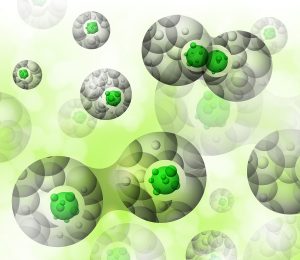A paper published recently in the journal Science has generated an enormous amount of media coverage. The paper’s matter-of-fact title, “Variation in Cancer Incidence Among Tissues Can Be Explained By the Number of Stem Cell Divisions,” doesn’t sound like something that would set the internet buzzing, but it sure did.

That’s because of how the paper was promoted and covered: “MOST CANCERS DUE TO BAD LUCK, NOT PREVENTABLE, STUDY FINDS” screamed one headline. But there’s a sharp disconnect between this paper’s findings and the hype surrounding it.
Here at AICR, we fund and analyze the research showing that a healthy weight, a healthy diet and regular physical activity could prevent hundreds of thousands of U.S. cancers every year. We’re concerned that the oversimplified coverage this study received will reinforce the widespread conviction that cancer “just happens” and cause Americans to throw up their hands and ignore the empowering, evidence-based message that everyday choices play an important protective role in risk for many of the most common cancers.
When looking at this paper, ask yourself three basic questions.
1. What’s Really New Here?
The paper employs a mathematical model to quantify the influence of “stochastic” (read: random) factors that contribute to cancer risk, specifically the mutations that can arise during cell division. The assumption their model makes is that because certain bodily tissues contain cells that reproduce more rapidly, those tissues are more likely to become cancerous over the long years of a person’s lifetime. This isn’t a new theory. It’s the best explanation we have for why cancer risk increases as you age.
Scientists have known for decades that random mutations play a role in risk for cancer. They’ve also known, however, that these mutations represent only one factor that contributes to cancer risk, alongside genetics, lifestyle, and other factors.
The Science paper’s attempt to put a number on the randomness of genetic mutations that increase cancer risk is new, and it’s an intriguing approach that may help us better understand why researchers have found no strong links between certain cancers (cancers of the blood, bone and nerves, for example) and lifestyle factors like diet, weight and physical activity.
But that’s exactly the point: the coverage this paper received talked about Cancer with a capital C. And that’s too broad a brush to use to understand something as complicated as human cancer, which is not one disease but many.
2. What Do They Mean When They Say “Cancer”?
The ongoing scientific review and analysis we conduct at AICR continues to show that approximately 1/3 of the most common cancers could be prevented by making everyday changes to what we eat, how much we move, and how much we weigh. Throw in not smoking, and not getting too much sun, and that figure climbs to nearly half.
But note: We say “of the most common cancers”. That’s because in the decades of research we analyze here at AICR, we have only found clear links between lifestyle and cancer risk for certain kinds of cancer, not all. Cancers of the digestive tract are strongly linked, as well as those of several other organs. It is increasingly clear that lifestyle plays a more important role in some cancers than in others.
Why is that important? Because nearly half of the cancers examined in the Science paper were those for which no lifestyle link has been shown to exist. For technical reasons, the paper also did not take into account two of the most common cancers – those of the breast and prostate – for which everyday choices have been shown to offer real, measurable protection.
3. What’s the Bottom Line?
For many of the most common cancers in the U.S., including those of the breast, colorectum, esophagus and prostate, you can take steps that will lower your risk. That remains as resolutely true as it ever was.
Yes, there are no guarantees. When it comes to cancer, there never will be, precisely because of that randomness the Science paper laudably attempts to account for. We all know people who do everything “right” – eat healthy, exercise daily, watch their weight, never smoke – who get cancer. This disease can strike anyone.
But it’s just as important to remember that hard scientific evidence shows that you can help protect yourself, that hundreds of thousands of cancer cases don’t have to happen, and that adopting a lifestyle that offers the most protection against cancer also protects against heart disease, diabetes, and host of other health conditions.






i strongly agree with well explained and logical arguments by Glen. its evident that chances of cancer are in direct proportion with number of mutations but in the same way number of mutations are directly proportional to lifestyle, food and addictions, nature of job and immediate environment of any person.
The Science paper and the AICR Blog above disregarded smoking-caused cancers, one of which is acute myeloid leukemia.
Prevention instead of treatment of cancer is necessary to people. So not smoking and going on a diet are meaningful to avoid suffering of people.